Ann Evans
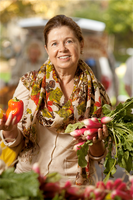
Ann Evans, a partner in the consulting firm Evans and Brennan, is an accomplished leader in the sustainable food movement who has helped bring organic food and healthy eating into the mainstream through her work with government, school districts, and nonprofit organizations. She is being honored among “Outstanding Alumni” with a 2012 CA&ES Award of Distinction.
Evans found her calling at UC Davis working on “real world” projects with community development professor Isao Fujimoto to create access to healthy food. She earned her Bachelor of Science degree in 1975 in consumer food science. That same year, Evans joined with local growers and fellow community members to found the Davis Food Cooperative and the Davis Farmers Market, one of the first four certified farmers markets in California.
After college, Evans cultivated her interest in food policy at the state Department of Consumer Affairs as a program manager in cooperative development and later as an analyst in the department’s legislative unit. She then served as consultant to two state Assembly committees before becoming chief of staff to Assemblywoman Delaine Eastin. Evans also served as an adviser to Eastin when she became the state’s superintendent of public instruction. Evans worked with the California Department of Education, directing school facilities planning, and as a consultant, improving school food through Farm to School and Garden in Every School programs. Since 2006, Evans and business partner Georgeanne Brennan have provided professional consulting services on policy development and marketing to organizations such as the California Department of Parks and Recreation, Center for Ecoliteracy, Community Alliance with Family Farmers, Sutter Davis Hospital, California Olive Ranch, and the Winters Joint Unified School District.
Evans has written many articles to help consumers develop a deeper appreciation for locally produced food. Evans and Brennan have published two books together—“The Davis Farmers Market Cookbook,” and “Cooking with California Food in K-12 Schools.” Evans is also a popular speaker and has presented information about improving school lunch programs to numerous professional groups.
Evans served on the Davis City Council from 1982 to 1990 and was mayor of Davis from 1984 to 1986. She initiated cooperative economic development programs, the open space program, and advocated for affordable housing policies. She was a founder of the Davis Farm to School Connection, which has become a national model for community-supported school lunch programs. Evans is active in many professional and community service groups, such as Slow Food Yolo and Les Dames d’Escoffier.
“Without her innovative thinking about agriculture and food systems, her tireless advocacy, and her ability to organize and motivate individuals, California agriculture and its connection to society would be much less than it is today. Her achievements are without parallel, and she has set a marvelous example of the positive change that one individual can create within a huge industry.”
—Capay Valley organic farmer Thaddeus Barsotti
Romeo Favreau
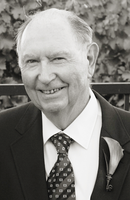 Romeo Favreau, a pioneer in computer simulation, has spent the last 16 years of his retirement volunteering at UC Davis to help advance computer models and devoting countless hours to numerous community service projects. He is being honored as a “Friend of the College” with a 2012 CA&ES Award of Distinction.
Romeo Favreau, a pioneer in computer simulation, has spent the last 16 years of his retirement volunteering at UC Davis to help advance computer models and devoting countless hours to numerous community service projects. He is being honored as a “Friend of the College” with a 2012 CA&ES Award of Distinction.
Favreau graduated from the Massachusetts Institute of Technology with a degree in physics in 1945. After serving as a naval officer during World War II, he joined Hughes Aircraft in Los Angeles and designed the first generation of air-to-air, radar-guided missiles. Favreau’s career also has taken him to Princeton, New Jersey, where he became vice president of research with Electronics Associates (1954–1969), and to San Diego, where he became a project manager with Dillingham Corporation. In 1975 he earned a master’s degree in aerospace engineering from UC San Diego and launched an engineering and consulting firm. He retired in 1992 and then moved to Davis with his wife, Irene, to be closer to their five children, three of whom are UC Davis graduates. Favreau contacted the university about volunteering and found opportunities that ranged from developing computer models for row crops and river systems to managing databases. But his hobby of farming macadamia nuts while in San Diego sparked an interest in plant growth models for trees.
Since 1996, Favreau has worked on the development of a model for peach trees (first with Professor Shu Geng and later with Professor Ted DeJong). “He rapidly grasped what we were attempting to do and began analyzing and improving the model we had,” DeJong said. “He was the glue that kept the L-Peach modeling effort together and he did it on a totally voluntary basis, refusing to accept any pay. During this period we made many substantial improvements to the model and Romeo played an integral part in all of them.” Favreau has also published landmark articles in peer-reviewed journals, and mentored research efforts in geographic information systems, plant growth simulation, water conservation, and water quality management.
Favreau has been involved in many community volunteer efforts, such as Meals on Wheels and the Davis Senior Center. He served as president of the Davis Kiwanis Club (1999–2000) and has participated in many Kiwanis service projects—a homeless shelter, a camp for the blind and visually impaired, a reading program for disadvantaged youth, a mountain bike riding club for youth at risk, and others.
“Romeo Favreau is not satisfied to just be a member of the Davis community; his vision looks to improve the community, be an example for others, and to help inspire our youth to be contributing members of their community. He exemplifies the concepts of volunteer service, giving back to your community, and he never stops being a productive member of society.”
—James J. Kocsis, past president, Kiwanis Club of Davis
Peter Moyle
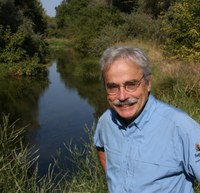
Peter Moyle, a professor of fish biology at UC Davis for 40 years, is the leading authority on California freshwater fish and an educator held in the highest regard by students, faculty colleagues, and conservationists. He is being honored as “Outstanding Faculty” with a 2012 CA&ES Award of Distinction.
Moyle embarked on his in-depth study of California fishes as a faculty member at California State University, Fresno, in 1969 but was recruited to join the former Department of Wildlife and Fisheries Biology at UC Davis in 1972. Soon he was publishing on the invasion of aquatic ecosystems by alien species, work that has been distilled for use in integrative management. He has a prolific record of publishing, with more than 200 peer-reviewed papers, 10 books, and close to 400 nonpeer-reviewed papers, presentations, op-ed pieces, and other publications. His textbook, “Fishes: An Introduction to Ichthyology” (co-authored with department colleague Joe Cech), is now in its fifth edition. Moyle’s monumental treatise, “Inland Fishes of California,” was published in a revised and expanded version in 2002 by University of California Press. With the sponsorship of California Trout, Moyle published “SOS: California’s Native Fish Crisis.” This book about the status of and solutions for restoring trout, steelhead, and salmon populations has influenced hatchery strategies, wild fish management programs, endangered species protection, and policy development.
With his vast knowledge of California fish and aquatic ecosystems, Moyle has been drawn into the very-public arena of water management in California. He has testified many times at hearings about the impacts of water diversion on native species, most visibly those in the San Francisco Estuary and on laws designed to protect native fishes. He also championed use of existing (but unenforced) laws to ensure adequate release of water from dams for fish, most prominently in litigation involving Putah Creek and the San Joaquin River. Moyle also was responsible for first quantifying the decline of delta smelt, a key indicator species of Delta ecosystem health. This work ultimately led to an endangered species listing for delta smelt and is at the foundation of its recovery efforts.
He is a popular educator, with a network of former students who treasure the experience of learning with him and readily acknowledge being “Moyle disciples.” He has mentored 43 doctoral or master’s students, who now occupy positions of leadership in government, academia, and nongovernmental organizations.
“Peter has been largely responsible for the training of the next generation of California’s fish conservation biologists, and his service to the stakeholders of California, as well as to the imperiled native fishes themselves, has been beyond measure.”
—Douglas Kelt, professor and chair, UC Davis Department of Wildlife, Fish and Conservation Biology
Brian Pacheco
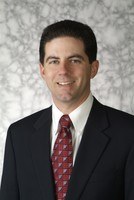 Brian Pacheco, a fourth-generation dairyman from Kerman, Calif., is a highly regarded member of dairy industry and community groups who has consistently advocated for UC Davis. He is being honored among “Outstanding Alumni” with a 2012 CA&ES Award of Distinction.
Brian Pacheco, a fourth-generation dairyman from Kerman, Calif., is a highly regarded member of dairy industry and community groups who has consistently advocated for UC Davis. He is being honored among “Outstanding Alumni” with a 2012 CA&ES Award of Distinction.
Pacheco earned his Bachelor of Science degree in 1991 in agricultural and managerial economics with a minor in rhetoric and communications. He has put the skills developed at UC Davis to good work in both his business and civic life. His Pacheco Dairy, Inc., with 1,300 Holstein cows and an elite group of purebred Brown Swiss cows, is a model of environmental stewardship and has been recognized as a top-producing herd in Fresno County every year since 1998.
In addition to serving as president of the Fresno County Farm Bureau, Pacheco serves on boards for the Community Regional Medical Center and the Fresno Dairy Herd Improvement Association. He is chairman of the board of California Dairies, Inc. (CDI), the largest dairy cooperative in California and the second largest in the United States. Pacheco is president of the board of trustees for the Kerman Unified School District, and is a member of the Nisei Farmers League, Sun-Maid Raisin Growers, and Western United Dairymen.
He has played a crucial role in building support for a future dairy at UC Davis. At a special meeting with fellow dairy producers, Pacheco explained how his UC Davis education has helped him excel in the dairy business and made a compelling case for a new dairy at the university. “He pointed out that a dairy facility on campus made sense because that’s where the students are, some of whom will be working for the benefit of the dairy producers in the future,” said UC Davis animal science professor Ed DePeters. “Brian emphasized that although many producers might be unaware of it, the research conducted at UC Davis impacts their daily life on the dairy farm from areas in animal science to plant science to economics and marketing.”
Pacheco also helped convince fellow CDI board members to make a $125,000 investment in the milk-processing laboratory at the Robert Mondavi Institute for Wine and Food Science. He is a lifetime member of the Cal Aggie Alumni Association (CAAA), has donated to the CAAA endowed scholarship fund, and made a generous gift to Aggie Stadium in honor of a friend who was an Aggie athlete.
“Brian Pacheco is a leader who reaches out into the community to make a difference. Whether it be the dairy industry, a local school board, the county board of supervisors, or countless other community efforts, Brian has never been reluctant to offer his time and talents to make a positive difference.”
—Mark Borba, president of Borba Farms, Inc., and a past recipient of the CA&ES Award of Distinction
Garry Pearson
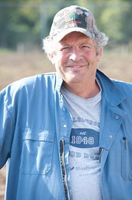 Garry Pearson, lead greenhouse manager for the College of Agricultural and Environmental Sciences, has shown extraordinary dedication to the campus’s essential plant research facilities for faculty, staff, and students. He is being honored as “Outstanding Staff” with a 2012 CA&ES Award of Distinction.
Garry Pearson, lead greenhouse manager for the College of Agricultural and Environmental Sciences, has shown extraordinary dedication to the campus’s essential plant research facilities for faculty, staff, and students. He is being honored as “Outstanding Staff” with a 2012 CA&ES Award of Distinction.
Pearson earned his Bachelor of Science degree in plant science in 1980. Today he supervises the greenhouse managers and nursery technicians who are responsible for about 150,000 square feet of greenhouses at various locations on campus. In addition to managing personnel, he oversees security and maintenance, space usage and lease agreements, and serves as the safety officer for the facilities. He is responsible for greenhouse pest management, environmental controls, and implementation of policy and regulations.
CA&ES greenhouses were managed by academic departments until 2004. The college then began centralizing greenhouse management to improve operations and cut costs. Some faculty members were skeptical about the change, but Pearson’s engaging management style, extensive greenhouse knowledge, and dedication to the research mission helped the transition go smoothly. One key was the development of a coordinated management and billing system to optimize greenhouse use. He also has made strides automating irrigation, fertilization, and lighting, as well as upgrading environmental controllers with computer accessibility.
Pearson appreciates how researchers have diverse ideas and needs but recognizes that every one of them has the same thought: their plants must be perfect for their research. In 2009, the rice panicle mite, a serious pest in other parts of the world, was discovered for the first time in California in a UC Davis greenhouse. The finding had potentially serious consequences for rice research on campus and for the state’s rice industry. Pearson took charge of a rapid response to the outbreak and worked with university researchers to destroy any rice plants that could be destroyed. Rice plants that could not be destroyed were moved to a contained research facility. All potentially affected areas were cleaned and sterilized. The mite was effectively eradicated and, crucially, it did not escape into California rice fields.
Pearson is involved in many community events. For Picnic Day he organizes student volunteers to plant tomato seedlings to give to visitors. He serves as a judge during the annual FFA competitions on campus. He is a graduate of the California Agricultural Leadership Program and regularly volunteers for its activities, especially those that showcase UC Davis.
“Our college grows everything from Arabidopsis species to zucchini, so in addition to individual researcher needs, different plants require different conditions, care, pest control strategies, and observation. We are very successful in our teaching and research involving plants and the great majority of credit must be given to Garry Pearson.”
—UC Davis plant pathology professor Bryce Falk
Bryan Silbermann
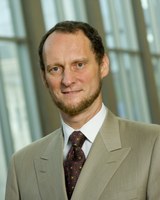
Bryan Silbermann, president and CEO of the Produce Marketing Association (PMA), was the driving force behind the creation of the Center for Produce Safety (CPS) at UC Davis in the wake of a food safety crisis. He is being honored as a “Friend of the College” with a 2012 CA&ES Award of Distinction.
The establishment of the Center for Produce Safety came in response to an outbreak of E. coli in spinach in 2006. The produce industry needed to address the crisis with science-based food safety research and discovered there was much that it didn’t know. Silbermann, CA&ES Dean Neal Van Alfen, and Secretary of Food and Agriculture A.G. Kawamura were the principal architects of the new center. At Silbermann’s recommendation, the PMA board of directors approved $2 million in start-up funding for CPS administrative expenses. Once PMA’s pledge was in place, others followed with commitments to serve on the CPS advisory board or technical committee and, in the case of Taylor Farms, pledge an additional $2 million to start a research program.
"The success of the produce industry begins and ends with our collective commitment to public health," Silbermann said at the time the Center for Produce Safety was created. "Our members, who represent every link of the nation's produce supply chain, are committed to supporting robust food safety programs based on the best science available."
CPS has since become a broadly respected resource that identifies research priorities, funds research, and coordinates forums to convey research information throughout the produce industry. To date, it has funded 42 research projects in four countries at 17 research institutions and in 12 U.S. states. In addition to direct research, CPS has become a go-to location for federal and state food safety agencies to source current industry practices.
The Produce Marketing Association is the largest global not-for-profit trade association representing companies that market fresh fruits, vegetables, and related products. Silbermann is a native of Durban, South Africa, and studied there, as well as at the University of Chicago and Oxford University. He joined PMA in 1983 and was selected to become president and CEO in 1996. Other new programs and services he has developed for the produce and floral industry include the Produce for Better Health Foundation, PMA’s Foundation for Industry Talent, PMA Australia-New Zealand, research into consumer demand and groundbreaking trends, standardized coding systems (PLU and UPC), the Produce Traceability Initiative, and food safety communication campaigns.
“Bryan is a uniquely qualified individual with intellect, foresight, and leadership abilities that he brings to all the ventures he works on.… He has been recognized by Supermarket News as one of the top fifty ‘power players’ whose actions drive the food industry.”
— Tim York, president of Markon Cooperative, Inc.
Kathleen Socolofsky
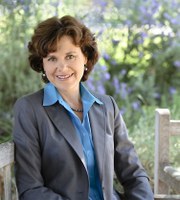
Kathleen Socolofsky, director of the UC Davis Arboretum and Public Garden, is helping transform the campus landscape with innovative programs and broad-based support. She is being honored as a “Friend of the College” with a 2012 CA&ES Award of Distinction.
Socolofsky arrived at UC Davis in 1998. She focused initially on building staff leadership skills and making operational changes to improve the appearance and experience of the UC Davis Arboretum’s gardens. This led to growth in plant sales, “friends” memberships, annual donations, and endowment gifts. Socolofsky next led a community-centered assessment, resulting in a 10-year strategic plan to guide the arboretum’s growth.
She has built partnerships across the campus and in the community that have led to major infrastructure improvements, including new paths, plantings, benches, interpretive signs, and computer-controlled irrigation systems. Plant records and collection maps have been upgraded with new computer software to a museum-science standard. Hundreds of trained volunteers work closely with arboretum staff. New gardens have been constructed, including the Arboretum Terrace Garden’s home demonstration garden and the Native American Contemplative Garden. The Redwood Grove has been completely renovated, as were the Storer Garden, East Asian Collection, Acacia Grove, and others.
Socolofsky oversaw development of the Arboretum Teaching Nursery, a new facility with spaces for garden education and demonstration plantings that showcase Arboretum All-Stars plants, California native plants, and pollinator plants. More recently, Socolofsky helped lead the launch of the UC Davis Public Garden, an initiative to transform the campus into a series of sustainable teaching landscapes, with links to academic programs, and climate-appropriate plantings.
The arboretum has partnered with a number of CA&ES programs, such as the UC Davis Art/Science Fusion program codirected by associate dean Diane Ullman and local artist Donna Billick. Their collaboration transformed the Peter J. Shields Oak Grove into a destination for visitors and led to the development of Nature’s Gallery, a ceramic mosaic mural in the arboretum that features native plants and insects. Socolofsky was involved in establishing the California Center for Urban Horticulture at UC Davis and is leading the UC Davis GATEways (Gardens, Arts, and the Environment) Project to tie the arboretum more closely to the campus.
Kathleen Socolofsky has served on the boards of the American Public Gardens Association and the Center for Public Horticulture at the University of Delaware.
“Whether solving a problem like egrets in the oak grove or water quality in the arboretum waterway, Kathleen has reached out to the faculty and students of CA&ES to turn problems into opportunities for education and outreach.”
—Diane Ullman, CA&ES associate dean for Undergraduate Academic Programs
Tedd Struckmeyer
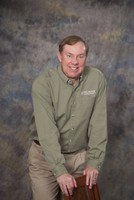 Tedd Struckmeyer, vice president for engineering and business development at Hilmar Cheese Company, is a devoted UC Davis alumnus who played a paramount role in designing the world’s largest cheese and whey manufacturing site in the San Joaquin Valley. He is being honored as a “Friend of the College” with a 2012 CA&ES Award of Distinction.
Tedd Struckmeyer, vice president for engineering and business development at Hilmar Cheese Company, is a devoted UC Davis alumnus who played a paramount role in designing the world’s largest cheese and whey manufacturing site in the San Joaquin Valley. He is being honored as a “Friend of the College” with a 2012 CA&ES Award of Distinction.
Struckmeyer graduated from the UC Davis College of Engineering in 1977 with a Bachelor of Science degree in agricultural engineering. He was hired by Hilmar as a project manager in 1992, when the company was still relatively small. He continually advanced within the company, designing systems and processes that helped the company grow. He also helped Hilmar meet important environmental goals through the development of an advanced water reclamation facility that exceeds state requirements. With a knack for analyzing systems, he has overseen improvements in quality, yield, and capacity that have transformed Hilmar Cheese Co. into a world leader in the dairy industry.
Through Stuckmeyer’s leadership, Hilmar has developed a close partnership with UC Davis that has proven beneficial both to the company and to the university. His many years of service on an industry advisory council for the Department of Food Science and Technology (FST) helped lay the groundwork for new teaching and research facilities for milk processing, as well as food processing and brewing. He invested hundreds of hours on what would become the August A. Busch III Brewing and Food Science Laboratory—reviewing plans for the milk-processing lab; evaluating materials used for walls, ceilings, and floors; selecting and installing critical equipment; procuring installation materials and assisting with equipment installation; and advising on the handling of raw milk. Hilmar’s critical support in helping build and equip the milk-processing laboratory has grown to $250,000. “I am personally grateful for the time and energy Tedd has given over the years and I am confident the milk-processing laboratory is a better facility, thanks to his personal involvement,” said FST professor emeritus John Krochta.
Struckmeyer has been instrumental in establishing a mutually beneficial relationship with professors and students, which facilitates student participation in Hilmar’s internship program. He has hired many UC Davis graduates who now work at key positions in the company. Struckmeyer also helped food science professors obtain samples from Hilmar’s processing facility for various research projects. And he represents the California dairy and dairy processing industry on the leadership board for the food science department.
“His experience-based knowledge, industry expertise, and quest to continually improve and make cheese and whey processing more efficient makes his time and talents highly valued. It is the passion to continually add value to dairy and innovate for the marketplace that he wants to instill in the next generation of agricultural engineers and food processing students at UC Davis.”
—Charles Ahlem, founding owner, Hilmar Cheese Company